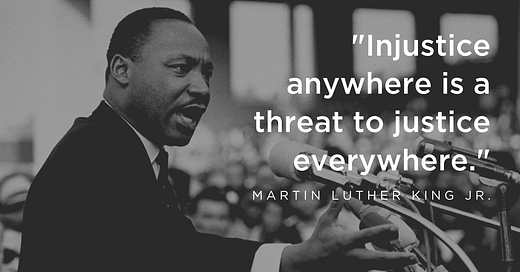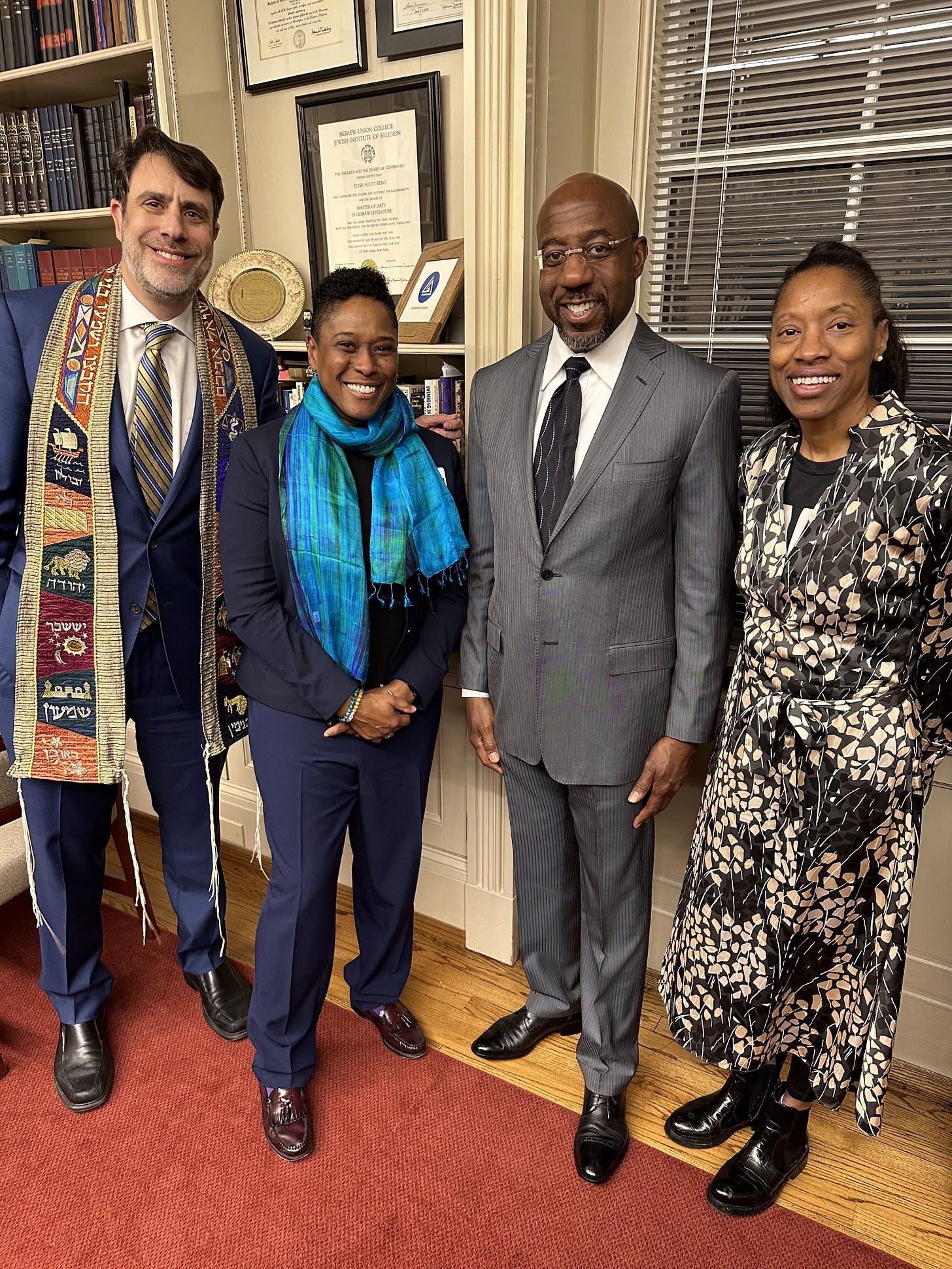Today is the birthday of Dr. Martin Luther King Jr., and this past Shabbat, I had the honor of offering words before the annual Martin Luther King Jr Shabbat dinner at The Temple in Atlanta, GA, with members of The Temple and Ebenezer Baptist church.
As I stood before this community of clergy and congregants from both communities, I reflected on the intersection of my identity as a Black and Jewish person. I began my words by saying,
"I am honored to be with you all tonight. I stand here tonight before you all, humbled to be with you all in this historic synagogue and with members from Ebenezer Baptist Church and the Jewish community. I stand here at the intersection of what it means to be Black and Jewish in America. I am the daughter of parents who grew up during segregation in the Jim Crow South in families of sharecroppers; my parents were part of that generation that migrated from the south to the north for better lives; today, I am a rabbi. And tonight, we stand together as members of two religious communities to remember the legacy of Dr. Martin Luther King Jr.
As Jews, it is important for us to recognize and honor the legacy of Dr. King, whose message of equality and justice aligns with our values of justice and the dignity of all human beings. We are all created in the Divine Image, which means that each of us has a spark of the Divine, and that also means that the Divine has a spark of each of us. Which means we are all related. We are all family.
This Shabbat, we begin the book of Exodus, a book we share, and we begin our collective journey together toward freedom and redemption. The Israelites escaped Mitzryaim, the place of pain and constriction. It's important to remember that our road to freedom did not begin with Divine intervention; it began with the act of non-violent civil disobedience by midwives who refused to comply with Pharaoh's order to kill children and instead saved their lives. This act of defiance sets in motion a chain of events that ultimately leads to our freedom and, finally, redemption on Mt. Sinai."
As our society celebrates the life and legacy of King, let us reflect on how we can continue to work towards creating a more just and equitable society. In his famous "Letter from Birmingham Jail," Dr. King wrote,
"Injustice anywhere is a threat to justice everywhere. We are caught in an inescapable network of mutuality, tied in a single garment of destiny. Whatever affects one directly affects all indirectly."
This quote speaks to the interconnectedness of our struggles for justice and the need for solidarity across marginalized communities. For my Black and Jewish family and my Christian allies, it is important to recognize the ways in which our struggles for justice intersect and how we can support each other in the fight for equality and equity.
After the dinner, there was a joint Shabbat service with clergy from The Temple and Ebenezar Baptist Church and music that featured a combined choir from the Temple and Ebenezar Baptist Church. With a sermon given by Senator Reverend Dr. Raphael Warnock, the Senior Pastor of Ebenezar Baptist Church.
After the service, I talked with my friend Victoria Raggs and Regan from the Atlanta Jews of Color Council. We talked until after 11 pm, so long that the Temple Staff had to tell us the building was closing.
As a Black Jewish person, it is especially meaningful for me to be in Black and Jewish spaces. I hope to have more opportunities like that in the future.
In conclusion, let us continue to honor King’s legacy and the principles he fought for and strive to create a more just and equal society for all. We must remember that by recognizing our shared humanity and the spark of the Divine within each of us, we can work towards creating a more just and equitable society for all. As Dr. King said, "The arc of the moral universe is long, but it bends towards justice." Let us continue to bend that arc toward justice and equality for all people.






Most inspiring.